
Jill Biden: US first lady tests positive for Covid-19
She is experiencing mild symptoms, the White House says, while President Joe Biden tested negative.
2023-09-05 19:52
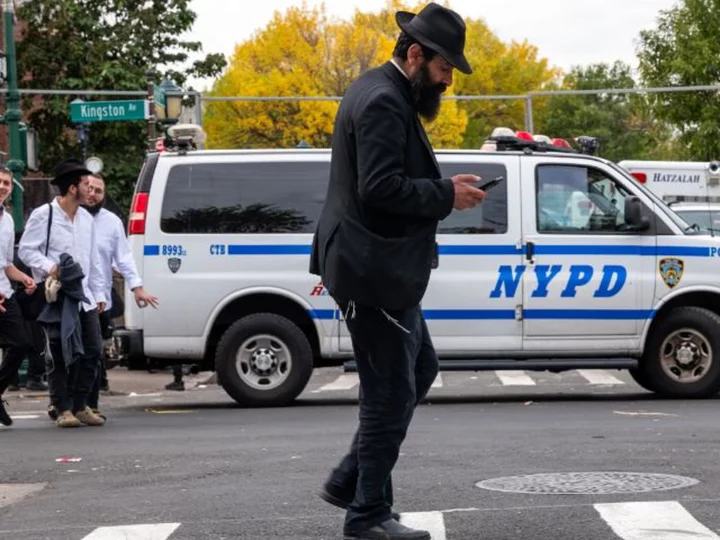
Security increased in some US cities amid former Hamas leader's call for protests
Security is being increased in some US cities Friday after a former Hamas leader called for protests amid the escalating war between Israel and Hamas militants, though officials in several cities said they have found no credible threats.
2023-10-13 23:22
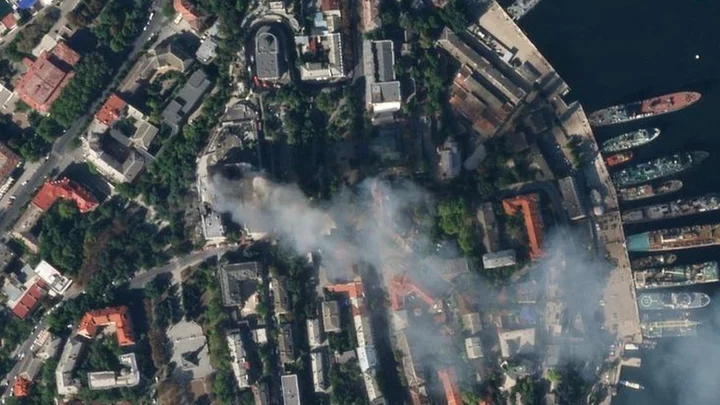
Ukraine claims Sevastopol strike hit navy commanders
Kyiv says senior officials in Russia's Black Sea fleet were present, but did not offer evidence.
2023-09-23 22:46
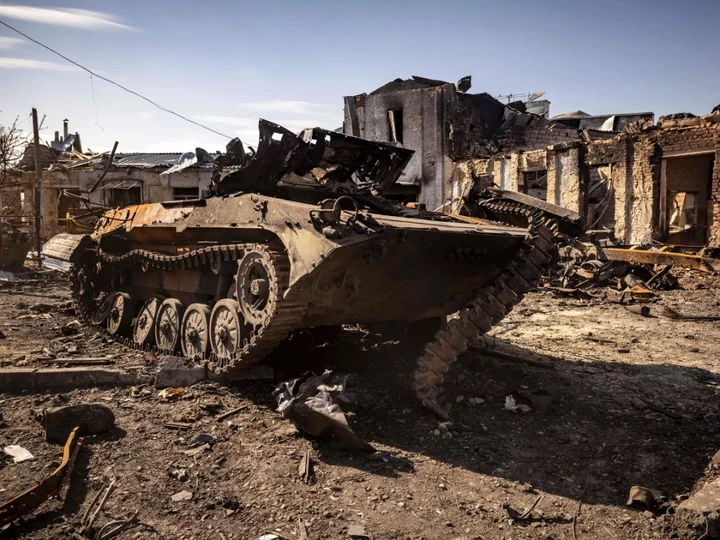
20 miles from the Russian border, one town struggles to move on from bloody occupation by Putin’s forces
Nobody believed the Russians would really invade, says Yuriy Bova, mayor of the small Ukrainian town of Trostyanets, just 20 miles from the Russian border – but 24 February 2022 will forever be etched in his mind. As Russian tanks trundled across the border in the early hours of the morning, there were no Ukrainian troops in Trostyanets – in Ukraine’s eastern Sumy region – and the residents of the town knew the enemy would arrive within hours. Bova says they tried as best they could to slow down the Russian advance. Felling trees onto the roads through the rolling hills and forests surrounding Trostyanets, brought one column of invading vehicles to a halt for two days. However, it wasn't enough. “There weren’t just four or five armoured vehicles, as we had imagined. Instead, there was another column with more than 100 vehicles, including up to 60 tanks and armoured personnel carriers, 20 troop-carrying trucks plus fuel tankers,” Bova says. The Russians rumbled into Trostyanets on the first day of the invasion, beginning a nightmare for the town’s 21,000 inhabitants. I'd heard about the plight of the town a month later, on 27 March – when it was freed from Russian occupation. In the intervening weeks, much of the town was destroyed, 49 of its people were killed and 13 others believed “disappeared” by the occupiers. I was in another area of Ukraine – and knew nobody in Trostyanets – but started to dial numbers I could find. The first person to answer was on a number for the “Hotel Trostyanets". The woman who answered, Tetyana Shevchenko, the hotel’s owner had just returned to her town. I could hear her trying to muffle her sobbing as she told me about how the hotel had been utterly trashed. Everything that could be stolen, such as TVs, fridges and air-conditioners, had been looted, while beds, furniture, even doors had been smashed. However, even while absorbing the destruction at the business she and her husband spent years building, Tetyana said she felt lucky compared to others whose relatives had been killed or homes had been reduced to piles of charred rubble. Such a refusal to surrender to despair is a trait that was to become ever more apparent across Ukraine. I finally managed to visit Trostyanets recently, more than 15 months into a war Moscow appeared sure would only last weeks. Hotel Trostyanets was easy to find on the town’s main street, standing intact as part of a row of burned and battered husks of buildings. The town, founded in 1660, contains onion-domed churches and a fortress enclosed by a stone white-painted wall, built in the mid-18th century. During the occupation, the Russians positioned heavy artillery inside, calculating – correctly – that Ukrainian forces would not target a structure listed as a historic treasure. The building was unscathed by Ukrainian shelling but its walls are peppered with bullet holes from machine-gun fire in a bile-filled farewell by the fleeing Russians. Every street bears some scars. The railway station and shops, restaurants and residential buildings that had fringed a large square and park are a scene of total devastation, with most of the structures blasted beyond redemption. The park is a churned-up mixture of tarmac and soil. Eerily perched at its centre, atop a high concrete pedestal, is a Second World War-era Soviet T-34 tank. One of its treads, hit by shellfire, trails limply. When the Russians arrived, they commandeered the hotel and kicked Tetyana out. She said they immediately set out to inspire terror in the town, whose people were often beaten or detained, without rhyme or reason. Many men were forced to strip at gunpoint and stand on the street throughout freezing nights, she says. “They intimidated people, looted shops. Soon they started rounding people up for torture. They used the basement at our railway station as a torture chamber, where they did whatever they wanted,” Tetyana adds. “They understood that we were frightened of them and they behaved even more arrogantly, they enjoyed it.” Two of her friends, a married couple, were riding bikes when the Russians shot at them without warning, says Tetyana. The woman died but the Russians “wouldn’t let her body be moved for burial and she lay there until the Russians left”. Tetyana is active in local politics and was head of the local election commission. She feared the Russians would eventually come for her and she and her daughter managed to leave in mid-March to western Ukraine. Both their husbands had previously left and were in the Ukrainian military. Tetyana and her husband started repairing their hotel as soon as the Russians left, using their savings – as well as help from the local authorities. She gives a wry smile as she shows a photo of the door of room number six, where a Russian scrawl indicates a Russian commander had stayed. The door will be part of a planned museum about the town’s occupation. The situation on the battlefield is now somewhat different. Ukraine has been pushing a counteroffensive to take other territory occupied by Russia in the south and east, and the border area not far from Trostyanets has become the centre of cross-border incursions by pro-Ukrainian forces. The bulk of these have been carried out by Russian partisans seeking to cause trouble for president Vladimir Putin. The Russian Belograd region, between two and three hours’ drive from Trostyanets into Russian territory, has faced shelling, as well as the raids. But Trostyanets had seen its own version of guerrilla activity during the Russian occupation. The mayor, Bova, relays how it worked. A powerfully-built compact man, Bova was born in Trostyanets and was formerly a businessman. He was first elected as a councillor when he was 24 and has been the town’s mayor for 18 years. British and American intelligence had warned the Ukrainian government that the Russians had prepared detailed lists of people in government, military, police, education, social activists, businesspeople and others they suspected would help organise resistance and who were marked for arrest or execution. Bova says: “I had to decide whether to stay in my office and wait to be arrested and taken away or perhaps killed. That would have been madness. Weapons were in short supply – we had just four machine guns. So we couldn’t fight with that.” He and his comrades established contact with the Ukrainian 81st Brigade operating in the area and they asked his people to provide intelligence on what was going on inside Trostyanets. “They said that would be much more valuable than any fight we could have put up at that time,” says Bova, who became commander of Trostyanets’s territorial volunteer forces. Some of the Ukrainian partisans stayed inside the town while Bova and others operated from bases in forests close to Trostyanets, gathering detailed information about the Russian forces – including where they ate and slept and where their heavy weapons and armoured vehicles were at any time. They also helped guide Ukrainian artillery firing at Russian positions. Ukrainian intelligence believes one of the first of the many Russian generals to be killed during this invasion died in Trostyanets. Bova secretly visited the town twice to show the partisans he was close by and boost morale. On 21 March last year, they and Ukrainian regular forces launched an attack on the occupying forces in an attempt to liberate the town. But after a fierce firefight they had to withdraw. Bova says quite a few Russians were killed but so was one of the partisans. However, Ukrainian forces were encroaching on the town and the demoralised Russians, fearing being surrounded, fled on the night of 27 March across the border into Russia. Bova speaks to me inside his office at the town’s main administration building which, he says, like other public and community buildings in the town, had been looted and wrecked by the Russians. “The Russians smashed and destroyed everything. Three days before they left they fired some 30 tank shells into our main hospital... They also deliberately destroyed residential buildings. It was pure malice.” Bova suspects the 13 “disappeared” people were among those tortured beneath the railway station. Two prisoners were found alive in the basements as the Russians fled. They told of victims who bled to death after their fingers were cut off. Anguish flickers across Bova’s face as he recalls how the first thing the torturers demanded while beating their captives was his whereabouts. Since the town was liberated, Bova says he has worked tirelessly to rebuild Trostyanets. Electricity, water and heating systems were destroyed or ripped out. The town’s firefighting vehicles, ambulances, buses and any movable equipment was stolen. He said the Russians took even basic toolkits and wrecked what they could not take. He says all the tasks had to be performed in parallel – a huge logistical puzzle – and Bova reached out to and has been contacted by 130 organisations and groups around the world eager to help rebuild Trostyanets. In addition, scores of individuals have helped, many turning up unannounced to donate funds or supplies or roll up their sleeves to assist. He says everything from food, clothing and medicines to hospital apparatus, emergency vehicles and buses needed to be replaced “to return some semblance of normality”. “Today there are no homeless people in Trostyanets living under a tree,” he says. “Everyone has some roof over their heads.” But the tension never really leaves. The enemy is never out of reach, being so close to the border. Bova has a vision to rebuild Trostyanets using innovative designs from around the globe – taking into consideration factors such as the needs of elderly or disabled people and employing energy efficient and green technologies kind to the environment. “We know that we can’t invent everything ourselves when searching for new concepts,” he says. Therefore, he believes, to rebuild their country, Ukrainians need to forge partnerships with groups and individuals around the world to learn their approaches on incorporating culture, education parks and recreation into town planning. To that end he has traveled to the US, where among other projects he is seeking to adapt for Trostyanets “a new philosophy of park design” being developed by the city of Chattanooga in Tennessee. And last month he was in London for “The Ukraine Recovery Conference 2023” which was co-hosted by the UK and Ukraine and aimed at ensuring Ukraine can come back stronger from the devastation it has faced. Bova believes rebuilding Ukraine must begin even before the fighting is over. “We’ve mastered swiftly the technology of the new [Western] weapons we’ve been given. This is a people who didn’t break despite the horrors inflicted by the Russians and our nation is capable of swiftly mastering the technologies and ideas to rebuild our country.” He says so many people have died to ensure Ukraine survives and that it is “a duty to make every one of those sacrifices count – by building a new future they would be proud of and not recreating the past.” Read More The Body in the Woods | An Independent TV Original Documentary The harrowing discovery at centre of The Independent’s new documentary Sunak ‘discourages’ cluster bomb use after Biden agrees to send them to Ukraine Thousands march in Bosnia to mark 1995 Srebrenica genocide as ethnic tensions linger on Ukraine's president hails the country's soldiers from a Black Sea island to mark 500 days of war
2023-07-08 20:52
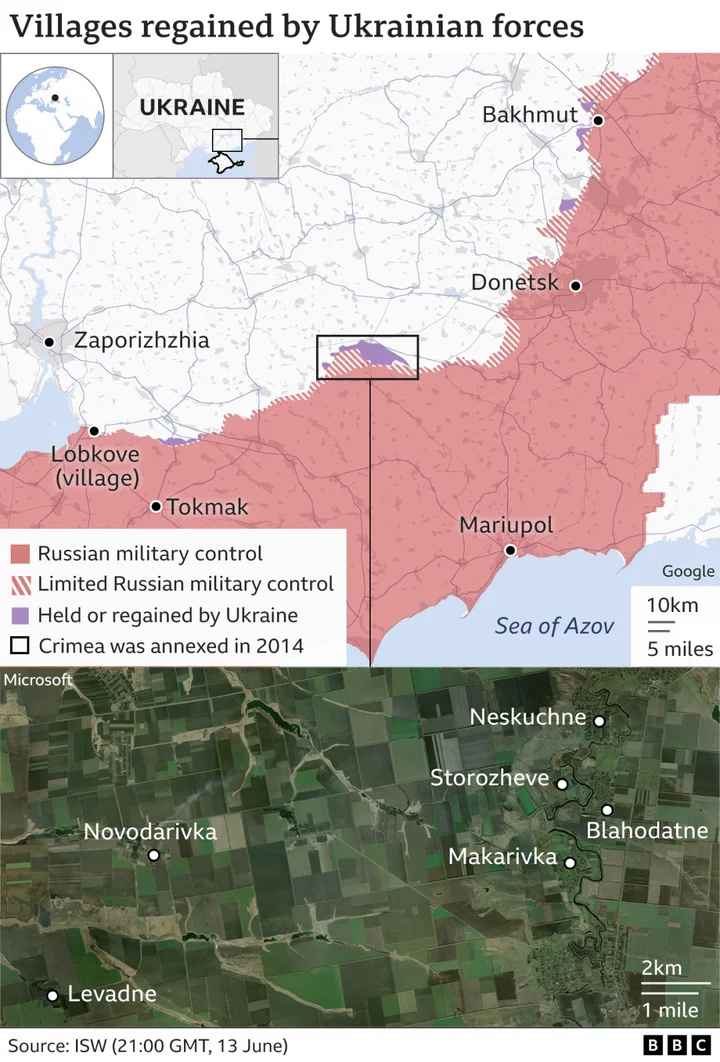
Ukraine in maps: Tracking the war with Russia
Ukraine's long-awaited counter-offensive to retake territory from Russia's occupying forces has started
2023-06-15 01:48
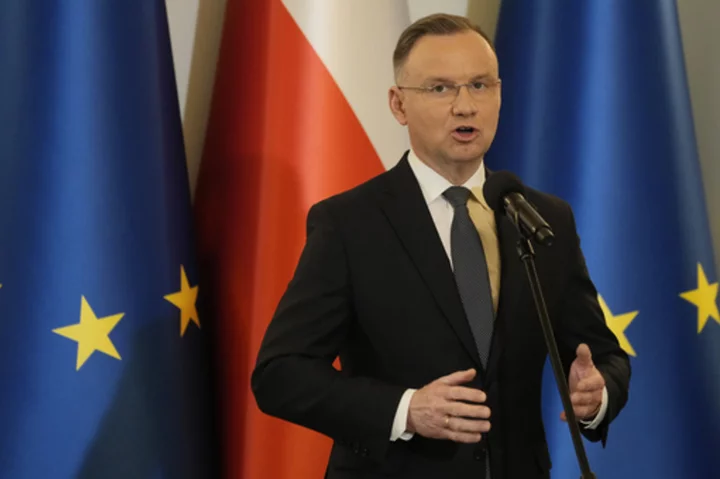
Poland's new parliament brings back state financing for in vitro fertilization
Poland’s new parliament has reinstated government funding for in vitro fertilization, previously banned by the conservative party which lost control of the legislature in the country's recent general election
2023-11-30 03:25
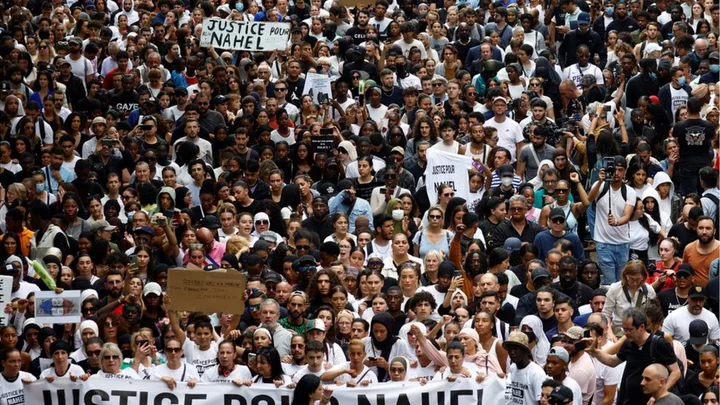
France shooting: Policeman charged over teen's traffic stop death
France sees a third night of mass unrest, triggered by Tuesday's police shooting of a teenager.
2023-06-30 15:58
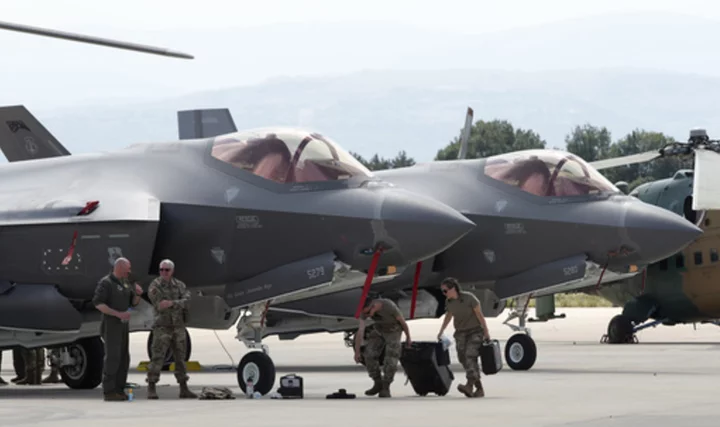
The Czech government has approved a defense ministry plan to acquire two dozen US F-35 fighter jets
The Czech government has approved a Defense Ministry plan to acquire two dozen U.S. F-35 fighter jets in a deal worth around 150 billion Czech koruna ($6.5 billion)
2023-09-27 23:58

US Marshals to auction off multimillion dollar car collection seized from YouTuber 'Omi in a Hellcat'
A YouTuber's Power-Rangers-themed Lamborghini, once the shining star of his extravagant car collection, is among 32 of his vehicles that will be sold at auction after the content creator was sentenced to five years in prison for fraud and other crimes.
2023-10-08 18:52
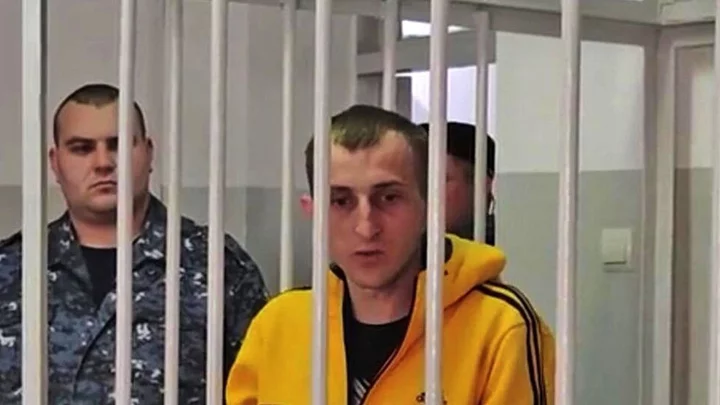
Russian convicts released to fight with Wagner accused of new crimes
Victims' families are distraught that Russian prisoners released to fight in Ukraine are reoffending.
2023-08-10 07:22
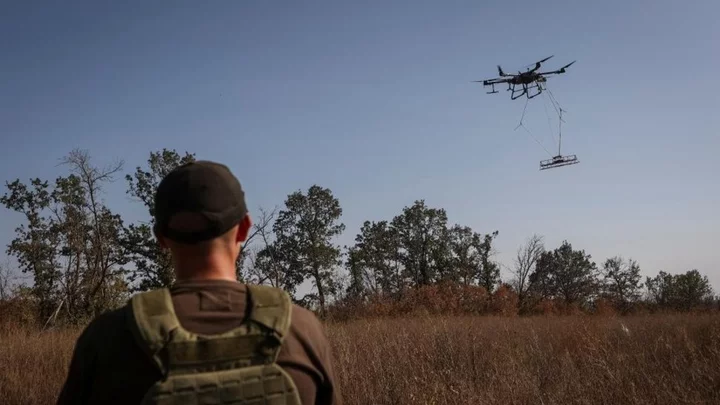
Ukraine fears drone shortages due to China restrictions
Volunteers in Ukraine say it is harder to access Chinese-made drone parts after Beijing clamped down.
2023-10-22 09:27

What happens at a sexual health check-up?
With record levels of gonorrhoea and syphilis cases reported by the UK Health Security Agency, it’s important to take sexual health seriously – and not just for young people. In fact, the number of common sexually transmitted infections (STIs) among over-65s increased by 20% from 2017 to 2019, according to the Local Government Association. This is why if you are sexually active, regular testing is necessary whatever your age – even if you don’t have any symptoms. “Sexual health check-ups are important because STIs can be silent but can also have significant health implications,” says Dr Priyanka Patel, consultant ambulatory gynaecologist at London Gynaecology. “STIs such as chlamydia can affect female fertility, and STIs such as HIV weaken the immune system.” To mark Sexual Health Week (September 11-17), Dr Patel talks through some key points about STI screening… How often should you have an STI check? “You need to have an STI check whenever you have a new partner, especially if you’re not using condoms, or think you were exposed to an STI,” says Patel. “Everyone should have an STI screen, including an HIV test, every year if having sex without condoms with new or casual partners.” Testing is also advised for anyone who develops possible symptoms. These may include unusual discharge from the vagina, penis or anus; pain when peeing; blisters, sores, lumps or skin growths on the genitals or anus; itching or a rash. What will you be asked at a check-up? You can find your nearest sexual health clinic via the NHS to book an appointment. Many sexual health services now offer free self-sampling kits to order online for people who don’t have any symptoms and want to do a check-up at home. “Men may have to hold their urine before testing, but women do not need to do anything in particular to prepare,” Patel says. “You will be asked about your sexual history, partners, contraceptive use and general health. You will be asked for details about your recent sexual partners and types of sex you have.” These questions may feel personal or intrusive but are important to ensure the correct tests are done. Remember, taking care of your sexual health is about being safe and empowered and healthcare professionals are there to help. What tests are done? “The testing will depend on the answers you give about the types of sex you have,” says Patel. “Vaginal, throat and anal swabs may be done – these will be used to test for chlamydia and gonorrhoea.” To do this, the clinician rubs a cotton bud inside the area for a few seconds. A blood sample will be taken to test for syphilis and HIV. Patel continues: “If you have symptoms, then the clinician will usually carry out a speculum examination to look at the health of the vagina and cervix.” How do you get STI test results? The way your results are delivered varies between clinics, and they will advise when you should expect to hear back. “Most will send results via a text message or give you a number to call for results,” says Patel, while some have a ‘no news is good news’ policy, meaning if you don’t hear anything then you’ve got the all-clear. For home testing kits, you’ll get a notification to say your samples were received and results are usually sent via text message. “If you test positive for an STI, they will arrange for treatment and offer support,” Patel explains – which goes for both clinic and self-sampling. She adds: “It’s important to notify partners of any positive results and the sexual health clinic can also assist in anonymous partner notification.” Read More Charity boss speaks out over ‘traumatic’ encounter with royal aide Ukraine war’s heaviest fight rages in east - follow live 9 arthritis myths we all need to stop believing Prince Harry spotted at Windsor Castle on anniversary of Queen’s death How the weather can change the way you dream
2023-09-11 15:18
You Might Like...

China's Commerce Minister travels to US to meet counterpart, attend APEC meeting
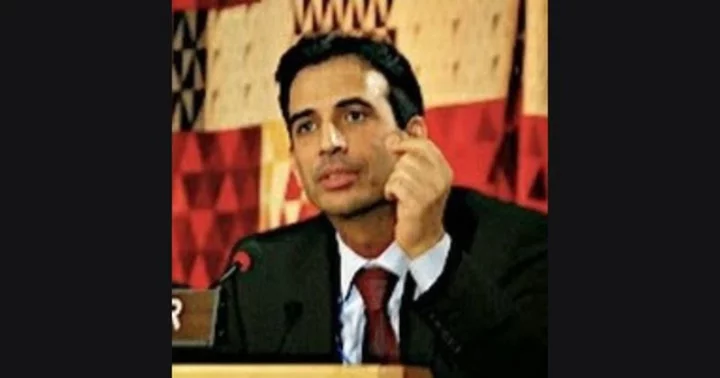
Who is Craig Mokhiber? UN Human Rights' top official in New York resigns over 'text-book case of genocide' in Gaza
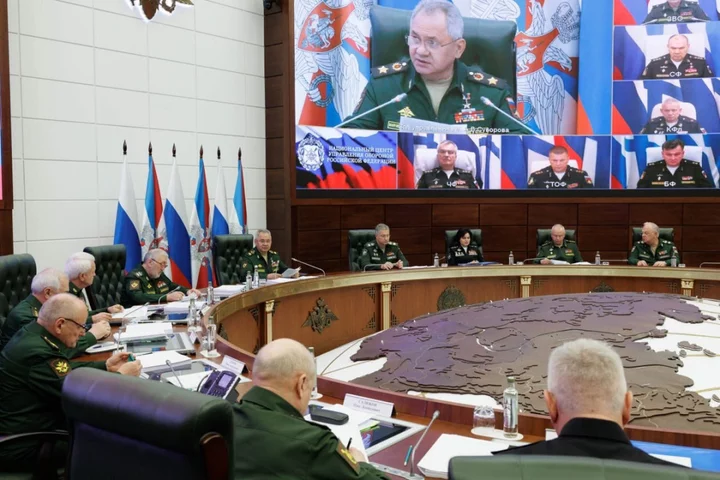
Russia airs ‘new interview’ of Black Sea admiral who Ukraine claimed was killed in strike

Dolphins rout Broncos 70-20, scoring the most points by an NFL team in a game since 1966

'Needs a mirror': Tamra Judge trolled over 'half-naked' outfit as she poses with 'RHOA' star Sheree Whitfield
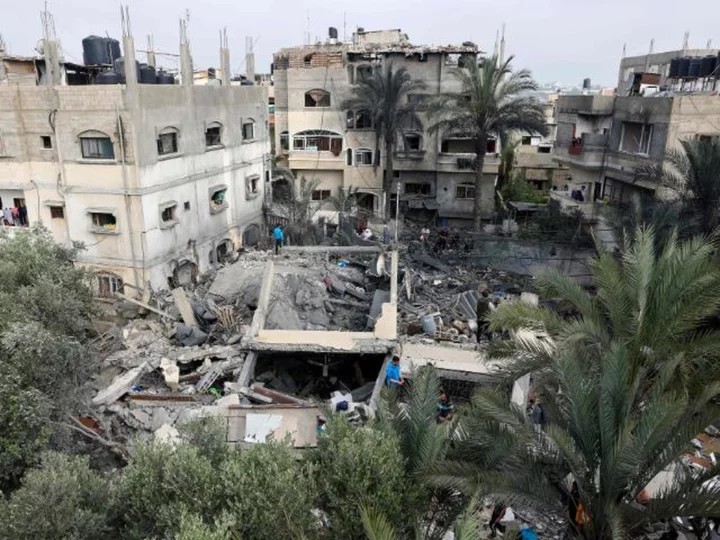
Israeli airstrikes kill Islamic Jihad's rocket commander, militants group says
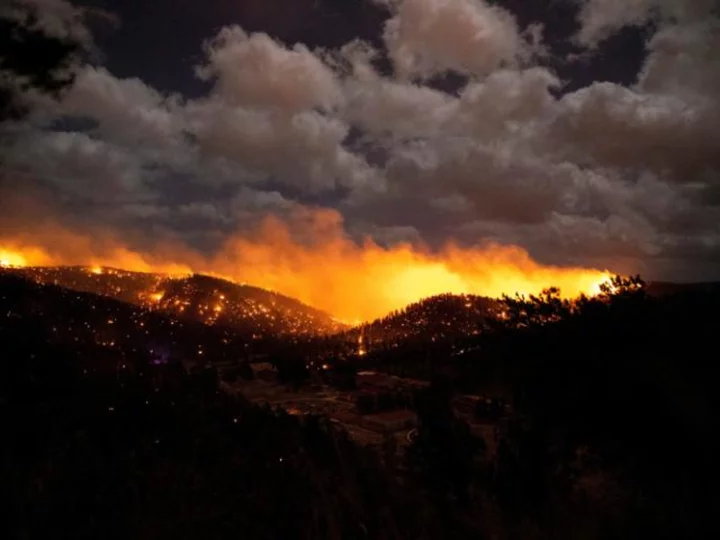
Wildfires are dealing a massive blow to US real estate and homeownership, congressional report finds
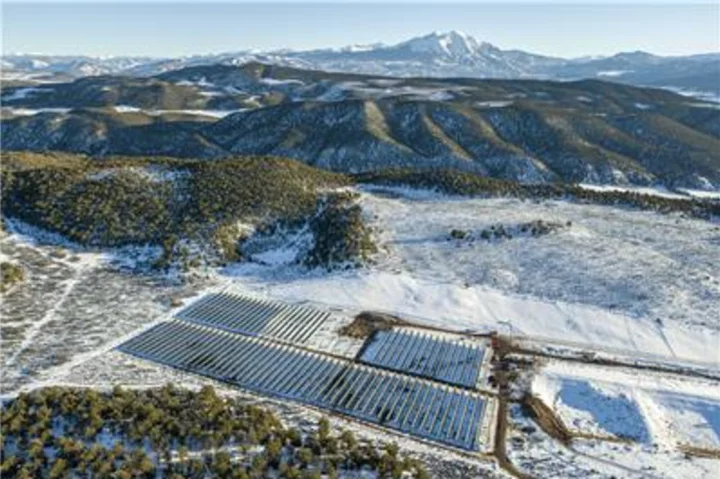
Ameresco Awarded Top Project of the Year by Environment + Energy Leader for partnership with Holy Cross Energy and Colorado Mountain College
